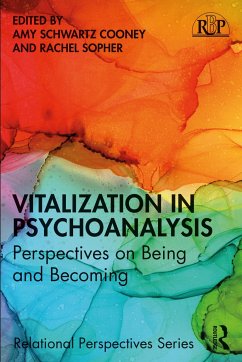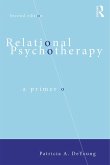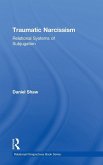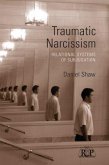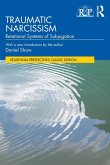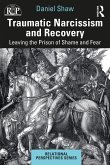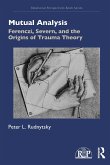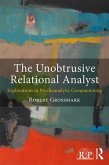In Vitalization in Psychoanalysis, Schwartz Cooney and Sopher develop and explore the concept of vitalization, generating new ways of approaching and conceptualizing the psychoanalytic project.
Vitalization refers to the process between two people that ignites new experiences and brings withdrawn aspects of the self to life. This book focuses on how psychoanalysis can be a uniquely creative encounter that can aid this enlivening internal process, offering a vibrant new take on the psychotherapeutic project. There is a long tradition in psychoanalysis that addresses the ways that the unique subjectivities of each member of the therapeutic dyad contribute to the repetition of entrenched patterns of relating, and how the processing of enactments can be reparative. But this overlap in subjectivities can also bring to life undeveloped experiences. This focus on generativity and progressive action represents a significant, cutting-edge turn in psychoanalysis. Vitalization inPsychoanalysis represents a deep meditation on this transformational moment in the history of psychoanalytic thought.
Pulling together work from major writers on vitalization from all the main psychoanalytic schools of thought, and covering development, theory and clinical practice, this book will be an invaluable guide for clinicians of all backgrounds, as well of students of psychotherapy and psychoanalysis.
Vitalization refers to the process between two people that ignites new experiences and brings withdrawn aspects of the self to life. This book focuses on how psychoanalysis can be a uniquely creative encounter that can aid this enlivening internal process, offering a vibrant new take on the psychotherapeutic project. There is a long tradition in psychoanalysis that addresses the ways that the unique subjectivities of each member of the therapeutic dyad contribute to the repetition of entrenched patterns of relating, and how the processing of enactments can be reparative. But this overlap in subjectivities can also bring to life undeveloped experiences. This focus on generativity and progressive action represents a significant, cutting-edge turn in psychoanalysis. Vitalization inPsychoanalysis represents a deep meditation on this transformational moment in the history of psychoanalytic thought.
Pulling together work from major writers on vitalization from all the main psychoanalytic schools of thought, and covering development, theory and clinical practice, this book will be an invaluable guide for clinicians of all backgrounds, as well of students of psychotherapy and psychoanalysis.
"To live or to exist in less than aliveness or deadness. Such is the profound question at the heart of contemporary psychoanalytic theory and treatment and this expertly curated volume brings together the leading writers on the vitalizing possibilities that inhere in contemporary psychoanalytic theory and practice. We encounter patients dominated by states of non-aliveness, absence, dysregulation, trauma and neglect; and clinicians who utilize elements of their own presence, reverie, countertransference and shere courage to facilitate, kindle and ignite life, libido and vitality. Reading this book is an exercise in parallel process: each unique chapter will itself inspire, enliven and vitalize the reader; and will help all clinicians as we struggle with our most difficult and challenging patients." -Robert Grossmark, PH.D. teaches and supervises at NYU Postdoctoral Program, The National Institute for the Psychotherapies, The Eastern Group Psychotherapy Society.
"Since the Winnicottian and Bionian ontological revolution in psychoanalysis, analysts have been more focused on helping our patients "to be" than "to know." As Winnicott outlined what allows a person to develop a capacity to be, we began to understand more about ways that we are also not allowed to be. A focus on deficits in symbolization, parental absence and deadness have now led to an increasing interest in experiences and metaphors of vitalization. This volume is a gift in helping us to understand how profoundly stark life can "be" without a sense of aliveness. A talented collection of analysts from the Independent, Kleinian, and Relational traditions contribute to our understanding of this crucial concept in contemporary psychoanalytic theory. These essays probe intersubjective processes of how vitalizing processes emerge, are enacted, and integrated. There is also a keen interest in the kind of object the analyst is becoming in the analytic process, one who can find new parts of the patient's inner life and play. Schwartz-Cooney and Sopher's volume embodies how analytic concepts such as deadness continue to evolve as key analytic writers bring to the matter their own struggles with finding vitality inside their patients and aliveness within the analytic process." - Steven Cooper is a Training and Supervising Analyst at the Boston Psychoanalytic Society and Institute, Associate Professor of Psychology at Harvard Medical School, and Chief Editor Emeritus at Psychoanalytic Dialogues.
"This is a rich and absorbing book, full of original descriptions of the void and its place in psychopathology. There seem to be myriad ways of arriving at empty states, but even more interestingly, a variety of routes out of them. The clinical accounts are very moving, and read like chapters out of a terrific novel: there is endless patience, endurance, stamina, terrible boredom, suspense and real excitement for patients and analysts alike. Read and enjoy." - Anne Alvarez, PhD, M.A.C.P is a Consultant Child and Adolescent Psychotherapist and a retired Co-Convener of the Autism Service, Child and Family Dep't. Tavistock Clinic, London, where she still teaches.
"This important volume highlights some of the most essential aspects of human existence: enlivenment, desire, generativity and hope. In highly creative and sophisticated ways, it brings to life critical ideas on therapeutic action, transformation, the capacity for a full existence and the role of psychoanalysis in reviving vitalization." - Dr. Galit Atlas, a faculty member in the postdoctoral program in psychotherapy and psychoanalysis at New York University and author of The Enigma of Desire.
"Since the Winnicottian and Bionian ontological revolution in psychoanalysis, analysts have been more focused on helping our patients "to be" than "to know." As Winnicott outlined what allows a person to develop a capacity to be, we began to understand more about ways that we are also not allowed to be. A focus on deficits in symbolization, parental absence and deadness have now led to an increasing interest in experiences and metaphors of vitalization. This volume is a gift in helping us to understand how profoundly stark life can "be" without a sense of aliveness. A talented collection of analysts from the Independent, Kleinian, and Relational traditions contribute to our understanding of this crucial concept in contemporary psychoanalytic theory. These essays probe intersubjective processes of how vitalizing processes emerge, are enacted, and integrated. There is also a keen interest in the kind of object the analyst is becoming in the analytic process, one who can find new parts of the patient's inner life and play. Schwartz-Cooney and Sopher's volume embodies how analytic concepts such as deadness continue to evolve as key analytic writers bring to the matter their own struggles with finding vitality inside their patients and aliveness within the analytic process." - Steven Cooper is a Training and Supervising Analyst at the Boston Psychoanalytic Society and Institute, Associate Professor of Psychology at Harvard Medical School, and Chief Editor Emeritus at Psychoanalytic Dialogues.
"This is a rich and absorbing book, full of original descriptions of the void and its place in psychopathology. There seem to be myriad ways of arriving at empty states, but even more interestingly, a variety of routes out of them. The clinical accounts are very moving, and read like chapters out of a terrific novel: there is endless patience, endurance, stamina, terrible boredom, suspense and real excitement for patients and analysts alike. Read and enjoy." - Anne Alvarez, PhD, M.A.C.P is a Consultant Child and Adolescent Psychotherapist and a retired Co-Convener of the Autism Service, Child and Family Dep't. Tavistock Clinic, London, where she still teaches.
"This important volume highlights some of the most essential aspects of human existence: enlivenment, desire, generativity and hope. In highly creative and sophisticated ways, it brings to life critical ideas on therapeutic action, transformation, the capacity for a full existence and the role of psychoanalysis in reviving vitalization." - Dr. Galit Atlas, a faculty member in the postdoctoral program in psychotherapy and psychoanalysis at New York University and author of The Enigma of Desire.

